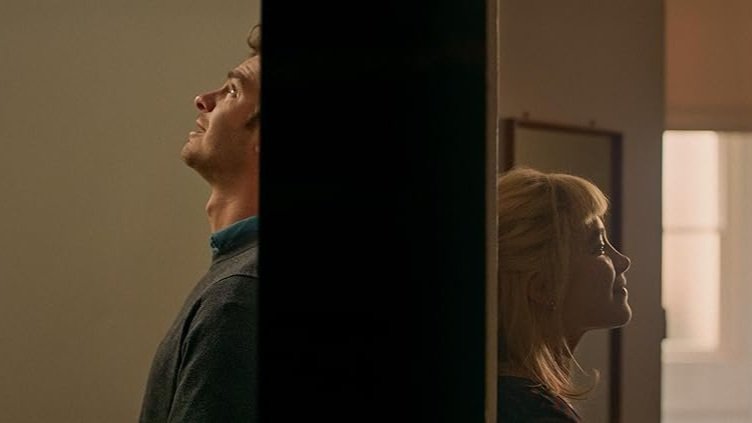‘We Live in Time’ REVIEW: Discovering the Beauty of Life, Love, and Laughter
‘We Live in Time’ REVIEW: Discovering the Beauty of Life, Love, and Laughter
After an unlikely encounter, A24’s We Live in Time follows the decade-long relationship between Tobias Durand, (Andrew Garfield), a cereal company representative, and Almut Brühl (Florence Pugh), a Bavarian-fusion chef. Facing life's ups and downs, the couple learns to cherish every moment, bound by their love and the family they build.
Tobias (Andrew Garfield) and Almut (Florence Pugh) in We Live in Time | Photo taken from IMDb
Presented in a nonlinear narrative — which isn’t exactly an entirely new concept — We Live in Time emphasizes moments of grief and memories of romance, moving back and forth between precious instances in the lives of Almut and Tobias. Rather than simply going from point A to point B, the film cleverly presents its story as fragments from different points, much like how we reminisce about the good times and the bad with our loved ones.
Director John Crowley (Brooklyn, The Goldfinch) capitalizes on the star power and acting prowess of Academy Award nominees Garfield and Pugh, which, aside from the story and Almut's battle with cancer, is the main selling point of the film as a whole. Their undeniable on-screen chemistry and off-screen connection as friends are very much felt in the film.
From their first encounter at the hospital — after Almut accidentally runs over Tobias on the road — we immediately realize we’re in for two actors at the top of their game. Tobias and Almut begin their relationship with the typical one-night stand, filled with "will he or won’t she" moments. But as the story slowly peels back to reveal more about their relationship, the film never loses its anchor.
Such is the case with the nonlinear nature of the film, the blend of humor and drama goes back and forth as well. From the subtle physical comedy brought by Garfield and the complementary reactions from Pugh, you could never stop falling in love with these two. Some romantic dramas don’t quite get it right, but We Live in Time knows exactly when these comedic moments should land, alongside the dramatic highs and lows of the story.
Almut and Tobias having a conversation with their daughter Ella (Grace Delaney) in We Live in Time | Photo taken from IMDb
Pugh as Almut is flawlessly charming without trying too hard. There is honesty and authenticity in her portrayal of Almut, someone she says she identifies with, and that is reflected on screen.
Her slightly dominant attitude contrasts with Garfield’s Tobias, who is a bit on the soft side. There is tenderness and care in portraying a man who knows how to balance masculinity to a tee. This, of course, may be attributed to Garfield’s personal life and how he dealt with grief, gaining a better understanding of love and moving forward because of it.
There’s so much we can learn from Tobias’ perspective on grief, especially after his mother passed and when he said, “I hope this grief stays with me because it’s all the unexpressed love that I didn’t get to tell her.” With this anecdote in mind, it adds another layer to Garfield’s portrayal of Tobias, a character we find ourselves wanting to hug whenever we see him go through emotionally tough times.
Almut in the car after a check-up in the hospital in We Live in Time | Photo taken from IMDb
With a turning point that alters the lives of Tobias, Almut, and their daughter, Ella, Almut’s ovarian cancer diagnosis is brought into the picture. There is a focus on making use of the time we have left and on living rather than dying. Similar films with the same dilemma can feel overdone, which, fortunately, We Live in Time steers away from. This kind of story can be quite hard to take, especially in moments where we see the characters struggle and their loved ones too.
Not without its flaws, the film also slightly suffers from not fully killing its darlings. There are moments in the film that hinder its pacing. However, this doesn’t take you out of the film entirely, as it powers through these minor nitpicks with the overall story. When the film’s major dilemma leads to an ending that can be predictable, you have to make up for it with the journey. In this case, the journey of navigating Tobias and Almut’s relationship, also makes us reflect more on ourselves, whether we find some relatability or not.
Discussions on having children, pursuing careers, and their perspective on marriage — these elements make the romantic aspect of the film more than just about sex and intimacy. Yes, we do get the physical manifestation of their love, but deeply rooted in it is the connection between two people navigating life together.
Tobias, Almut, and the viral carousel horse meme in We Live in Time | Photo taken from IMDb
There is so much to live for to ever feel like dying. When the audience is given that kind of message, we ultimately get an ending and "conclusion" that feels bittersweet. It’s the legacy that Almut ultimately leaves behind — becoming an amazing wife, a masterful chef, and a mother who her daughter, Ella, remembers as the best woman she has ever met. Even with how the camera feels energetic in the moments that deserve to be remembered and immortalized, We Live in Time allows itself to be more immersive. The dramatic moments are captured in still shots, as if we are there to listen and ponder the conflict.
In the end, when the audience is treated to a story that is somehow overdone but knows how to be creative and innovative in presenting it, we at least leave the cinemas feeling satisfied and reflective.
‘We Live in Time’ is now showing in Philippine cinemas.

















